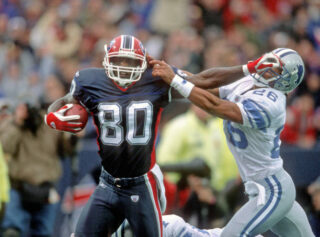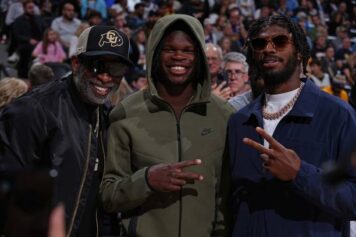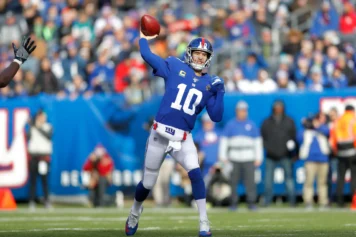This is a story about tears and the emotions that can be found in each drop.
This is a story about tears and the many emotions contained within them.
It’s a tale about emotions, the memories coloring them and the sometimes daunting change of identity that comes with accomplishment.
Our heroine? An albino woman named Brandi Darby who became the first legally blind woman to medal at a USA Weightlifting event last July. And if she’s being honest with you, she’ll say it was an honor she wasn’t sure she was ready to accept.
In fact, the day she walked into the American Open Series 2 in Valley Forge, Pa., Brandi didn’t even think that making history was a possibility.
She was too busy taking in her surroundings.
Because of her albinism, Brandi has trouble deciphering objects beyond 20 feet in front of her — and everything in between is hazy at that. Still, backstage at the Valley Forge Casino Resort, she could see each athlete in all their brawn and vigor warming up their lifts backstage. She even made out the silhouettes of some of her favorite athletes from Instagram. Like Cara Heads Slaughter, an American Olympian. The sight of her made Brandi’s stomach flutter.
“The pomp and circumstance of it all is what was getting me,” Brandi told the Shadow League.
As excited as Brandi was to be in that convention hall, a part of her was still trying to find her place. The 36-year-old from Pittsburgh had only started competing in Olympic weightlifting in February. This was the biggest event she had ever been a part of. She was slated to compete in the 90-kilogram masters weight class against six other women.
Thankfully, she knew that the organizers of the event were ready to accommodate her impaired vision. They let her coach, Tom Duer to walk her up and down the steps so she wouldn’t trip over any of the cables. The judges also said they would give her audible cues instead of visual ones. That way she’d know when she had completed her attempt or cleared a weight.
With all that in mind, Brandi knew she could relax a bit and just focus on what she set out to do:
Go six for six on her lifts.
https://www.instagram.com/p/BmJ-OtEHtve/?taken-by=usa_weightlifting
She thought that was enough to make her coach proud. But even more so, Brandi wanted to honor her father who passed away two and a half years ago. The late Charles “Chuckie” Young had albinism, too, and overcame his disability to become a competitive powerlifter.
He was her greatest inspiration.
“I only do this because he used to punish me with it when I was a kid,” Brandi laughed. “I had to do air squats and deadlifts with a broomstick when I was being mouthy.”
Unfortunately, Brandi didn’t quite make her goal. She hit four out of six for a total of 135-kilograms between the snatch and the clean and jerk categories.
She went backstage and packed her bag while the other girls made their lifts. As each of her competitors walked by, she congratulated them with a smile and a tinge of disappointment. The competitor in her was focused on failure in that moment.
But when Brandi heard that she had placed third at her first-ever national meet, all she could do was cry. She started thinking about her father and how he would have loved to see her on that podium.

Photo Cred: Brandi Darby
Daddy’s Little Leo
Brandi often credits her dad for teaching her how to move through a blurry world. Growing up in the projects of Pittsburgh with two working parents, she was far from a sheltered child.
“We had too much going on for my disabilities to rule the conversation at the dinner table, you know what I mean?” she said.
What she means is that she and her sister split the chores equally. Her sister mopped and vacuum the floors because she could see all of the crumbs and dust on the floor. Brandi did the dishes and made the beds because she could feel the grime on the silverware and the wrinkles in the sheets.
Beyond that, Chuckie made sure that his daughter Brandi learned everything that her sister and cousins did. She learned to take the bus on her own just like everyone else. She jumped into all sorts of sports like basketball, dodgeball, softball — a lot of sports many would assume a blind person would have trouble participating in.

Brandi’s father, Charles Young. Note: Brandi has a form of albinism called Oculocutaneous Albinism, which affects the hair, skin and eyes. Charles had Ocular Albinism (OA) which only really affected his eyes, hence the darker hair and skin tone. Photo credit: Brandi Darby.
But Brandi was the type of kid that if you told her she couldn’t do something, she’d do it anyway just to stick it in your face. She’ll attest she’s a fiery Leo.
When 10-year-old Brandi told her mother that she was going to try out for the softball team, her mom said she was better off playing something else. Chuckie jumped to Brandi’s defense.
“Let her,” he said then looked at his daughter.
“He told me I have to set my own boundaries in order to know which boundaries are mine or which boundaries were given to me,’’ added Brandi.
Even though she didn’t end up playing softball, she remembers the sheer glee of just being able to participate with other kids in activities she enjoyed — like cheerleading. Above all, she’ll never forget the day her father taught her and her cousins how to ride a bike.

Brandi and her parents. Photo cred: Brandi Darby.
“I remember having to practice riding the bike longer than everyone else because I couldn’t see,” she said. “I was so distracted by everything that was going on around me that I was afraid of running into the chain link fences beside me. I wanted to quit. But my dad would just run right in front of me and say, ‘Just chase me. Just come and get me.’ Suddenly, I wasn’t as scared anymore.”
Then one day she asked her dad to take her to the gym with him, and her love for powerlifting began. Later in her 30s, she’d find CrossFit and find her passion for Olympic lifting.
Which brings us back to those tears streaming down her face at the American Open Series.
Those tears weren’t just streams of joy. They traced back to a deep-seeded fear that she couldn’t quite shake.
She was afraid of being different.
The Layers of Black Albinism
As daring as Brandi has been most of her life, she has never intentionally set out to be the first blind woman to do anything.
Because that would make her a somebody.
And being a somebody meant like she couldn’t just be like everyone else.
“I don’t want to be any more different than I already am,” said Brandi. “I’m already albino. I just don’t like newly added layers of being different because it’s never easy being the odd one out.”

Photo Credit: Brandi Darby.
The idea of being “the odd one out” brings up painful memories of being left out of games of hide-and-seek with her cousins. It reminded her of the moments she thought her fair skin alienated her from her family.
“Growing up there was always this dichotomous thing where I wasn’t black enough for a lot of people because I had what they perceived as white privilege,” said Brandi. “And then some white people didn’t even know I was black or enjoyed the fact that I looked like them. So they would give me things like scholarships and stuff to feel good about helping out a girl from the projects. It took me a while to find myself in that balance.”
Layered on top of that is the complex guilt that sometimes accompanies black youth who achieve “success” defined by a white-dominated society. Brandi felt that her scholastic achievements strained her friendship with her cousins.
“In fifth grade, I went to private school while my cousins went to public school,” she said. “When they caught on that I was probably going to do well academically, they started accusing me of trying to ‘pass’. They used to say I thought I was better than them because I knew all of these SAT words. I’m like, ‘Y’all, when I see you, I see me. But when you see me, you see them.’ It wasn’t fair.”
Brandi admits, that sometimes she felt the need to make herself small to stay close to the family she loved so dearly.
This is why standing tall on that American Open podium with that bronze medal around her neck brought a smile to her face and dropped pit in her stomach. She knew her whole family was watching her on the livestream.
“I honestly thought that they were going to think I was better than them and that somehow I’d have to prove that I’m not,” said Brandi. “I had this temptation to shrink so that I’d stay common.
I want people to know I’m normal.”
Finding the Courage to be “The First”
When Brandi returned to the hotel from the medal ceremony, USA Weightlifting asked her coach if she was willing to do an interview. Word had got around that she had broken a barrier for blind women everywhere and USAW wanted to feature her on their website. Her Coach Tom urged her to go and Brandi once again started to cry.
“I felt insane because of all of these highs and lows,” she said. “In a way, it was so humbling to be asked for an interview because I felt like one of the gang. I already love the Oly community and I’m so happy I found a coach that lets me be independent. But at the same time, I didn’t want to do it because I didn’t want to have a whole new group of people to shrink for.”
In the end, Brandi mustered up the confidence to speak to the reporter and she did so without flinching. If you ask her where the sudden courage came from, she’ll tell you it was because she was thinking of the new friends she made at a conference a few years ago.
Brandi speaks to Coach Tom at the American Open. Photo credit: Brandi Darby.
In 2014, Brandi attended an event held by the National Organization for Albinism and Hypopigmentation (NOAH) in San Diego, and it was there for the first time in her life that she made friends that looked like her.
“It was amazing,” she said. “But I was also surprised by the questions people were asking me. They were like, ‘Wait you can legally drive during the day? You travel internationally? How do you work out? Aren’t you afraid that you are going to walk into something at the gym?’”
I didn’t know that I was doing things that we didn’t do. I went to that conference thinking that I would find other people who had have a certain joie de vie. But I didn’t find a lot of that. I found fear and doubt.”
Brandi understands that fear and doubt, especially when you don’t have a community supporting you. For her, starting CrossFit and Olympic weightlifting was scary and a bit intimidating at times. At the first gym she signed up for, she said that the coaches were a overly cautious around her and didn’t seem like the friendliest people. But it wasn’t long before she found a home.
That home is called the PFP Barbell Club, where Tom is the head coach. He said that when he first saw Brandi, all he saw was a powerful athlete with immense potential. He didn’t even know she was blind.
“Yeah, I figured it out after a few days when she spilled her coffee four or five times on the floor,” he laughed.

Brandi and her Coach Tom hugging after her final clean and jerk. Brandi had thought she had cleared her final attempt only to realize after the hug that she didn’t hear the “no lift” call. Photo Credit: Brandi Darby
Still, Tom had no doubt that she could succeed in the sport.
“I didn’t think [her vision] was going to affect the way that she would perform at all,” said Tom. “It wasn’t hard to work with someone who has a visual disability because that’s how we all have to learn the sport anyways. The thing about weightlifting is that you don’t see yourself lift. If you put a mirror in front of a weightlifter it would actually make things worse. So in some regards, Brandi has an advantage.”
This means that Brandi and her new bronze medal are showing other people with visual impairments that they, too, can be extremely competitive in weightlifting. And because of that Brandi is beginning to step into her new brand of “Somebody” — even if it scares the crap out of her.
https://www.instagram.com/p/BmXKfc7hHxr/?taken-by=brandiblifting
“At the end of the day, I want people to know that as terrifying as this is to me, it’s more important that people can see that you can do this,” said Brandi. “I want to go as far as I can in Oly so I can help shine a light on the possibilities because this is not just albinism. It’s about changing how we view disabilities, period.”
Now Brandi hopes to compete in the Paralympics one day and represent blind athletes on the grand stage.
All to change the way we see.



